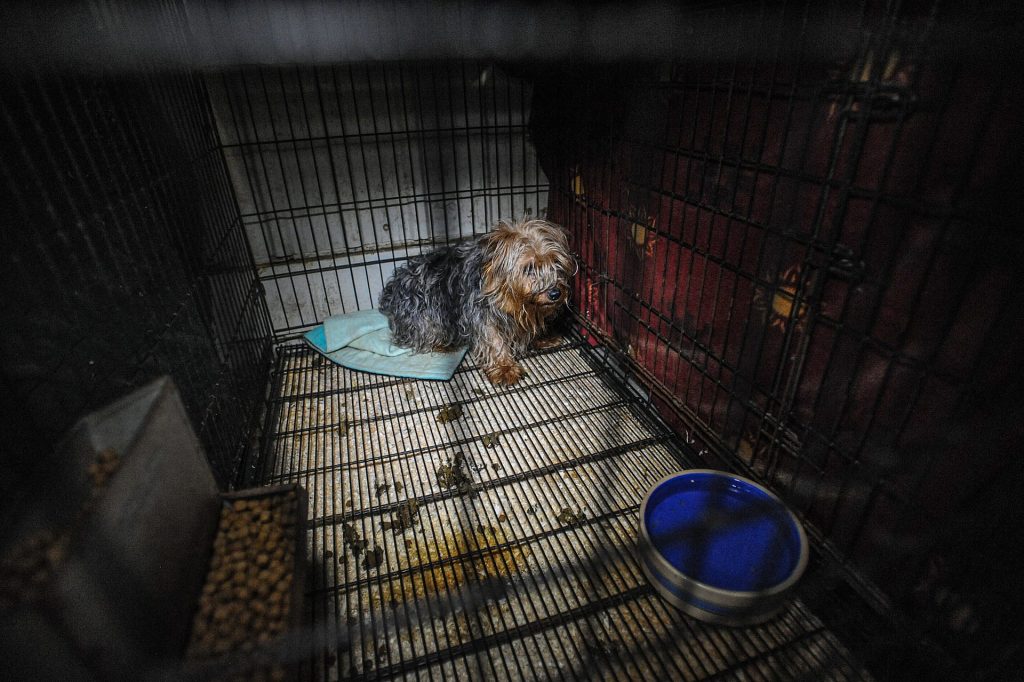The Ontario government is working to pass legislation it claims will tackle puppy mills, but the toothless legislation would fail to protect dogs from cruelty in commercial breeding. The bill is about to move to committee for further study, and we’re urging lawmakers to strengthen the bill to meaningfully protect dogs from abuse.
In December 2023, Ontario introduced the Preventing Unethical Puppy Sales Act (PUPS Act), which would amend the Provincial Animal Welfare Services Act to prohibit some harmful dog breeding practices. But unfortunately, the bill won’t make puppy mills illegal.
The bill would:
- Ban the breeding of female dogs who are under a year old
- Prohibit separating puppies from their mother before they are eight weeks old
- Require that dogs with a contagious disease are kept away from others
The bill fails to:
- Require licensing for dog breeders so they can be inspected
- Create standards for adequate housing, food, exercise, socialization, and medical care, and screening for genetic problems in puppies
- Prevent dogs and puppies from being caged 24/7
- Protect dogs from being kept in inadequate conditions
- Impose limits on the number of dogs kept at a facility—one of the biggest factors impacting dogs used for breeding
Without a licensing regime, animal cruelty law enforcement is nearly impossible. If dog breeders and puppy mills don’t have to be licensed, their location would remain a mystery, allowing individuals to subject dogs to cruel practices and poor conditions behind closed doors—often in hidden places like barns and basements.
Currently, one of the only ways for authorities to know about illegal cruelty at puppy mills is through a complaint by a member of the public. This makes it extremely rare for puppy mills to be caught and charged.
Selling dogs via online classified listings or in pet stores is another major issue that the PUPS Act can abolish. Instead, pet stores should work with rescue groups to adopt out dogs in need, and to prevent dogs from dying in overburdened shelters.

How the PUPS Act Can be Improved to Protect Dogs
In puppy mills, breeders force dogs to produce litter after litter of puppies, often in horrifying conditions. It’s common for puppy mills to have dozens or even hundreds of dogs, who are often locked in small cages 24/7, without access to regular exercise, socialization, or veterinary care.
Animals from puppy mills and backyard breeders often become ill or injured from chronic conditions, abuse or neglect, or genetic defects.
Use your voice! Tell Ontario to require licenses for breeders, create strong legal standards for breeding and care, and fix the incredibly weak PUPS Act.
Photo: Wikimedia Commons | Krotz
